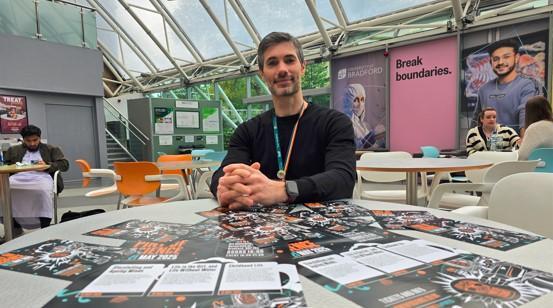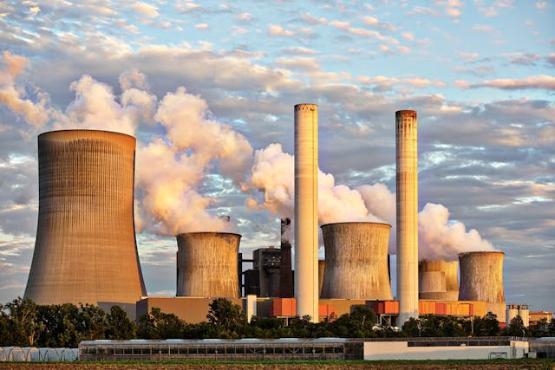Is the air we share a toxic soup of pollution?
Is the air we share a toxic soup of pollution? Join Dr Jacobo Elies from the University of Bradford at one of this year's Pint of Science talks at the National Science and Museum on Tuesday May 20, from 6pm to find out.

The Air We Share is a Pint of Science talk that offers a fascinating insight into the one thing we all cannot live without – air.
Cell Biologist/ Pharmacologist Dr Jacobo Elies from the University of Bradford lifts the lid on the toxins we breathe on a daily basis.
He says: “Pollutants are everywhere but most of the time they are too small for us to see. Even when you look outside and think it’s a nice sunny day, the air is full of invisible pollutants, some of which can be harmful to us. The Air We Share is a discussion about these toxins and what people can do to limit their effects.

“Did you know that 99% of the world's population breathes poor air quality, leading to a staggering 4.2 million deaths annually? Pollution is caused by all kinds of things, including manmade things such as smoking and pesticides and natural phenomenon, such as volcanic emissions and sand from the Sahara desert.”
Air care result
A recent study by the Born in Bradford project (and incidentally the largest of its kind in the world) found a direct link between air pollution and health.
The research, funded by the National Institute for Health Research analysed more than 120,000 patients over four years.
Meanwhile, an interim study by BiB suggests a reduction in GP appointments for cardiovascular and respiratory conditions following the introduction of the Clean Air Zone in September 2022.

Link to health
Dr Elies cites common pollutants such as those from fossil fuel vehicles and aeroplanes, but also less obvious ones such as log fires, spray deodorants, house cleaning products, and scented candles.
He said: “It’s something we can’t really escape. Not every pollutant is bad but many do have an effect on our bodies at the microscopic level, for example when they interact with endothelial cells that line our blood vessels.
“The point is that prolonged exposure to some of these contaminants, such as those made by the burning of fossil fuels, or others when we cook food, can lead to chronic cardiovascular conditions, cancer and respiratory diseases, and even dementia.
“This is not a talk designed to scare people, it’s more about educating people, making them aware of the dangers of repeated exposure and then taking steps to mitigate those risks and that can be as simple as opening a window to ventilate the house, or vacuuming regularly.”
Pint of Science festival
The Air We Share will take place on Tuesday May 20 at the National Science and Media Museum, from 6pm. Tickets cost £5.
It is one of a number of talks as part of the University of Bradford’s contribution to the national Pint of Science week, which is designed to make scientific research more accessible.
Other talks include:
- Mon May 19, 6pm: G Cubed: Making learning fun! With Dr Giulia Grimaldi Assistant Professor, University of Bradford and Founder of G-Cubed (Waterstones, Bradford, BD1 1BL)
- Tues May 20, 6pm: Theatre in the Mill, Theatre in the Mill, BD7 1DP: Why Your Belly Bugs Love the Outdoors by Dr Elizabeth Kiilu (Assistant Professor, University of Bradford)
